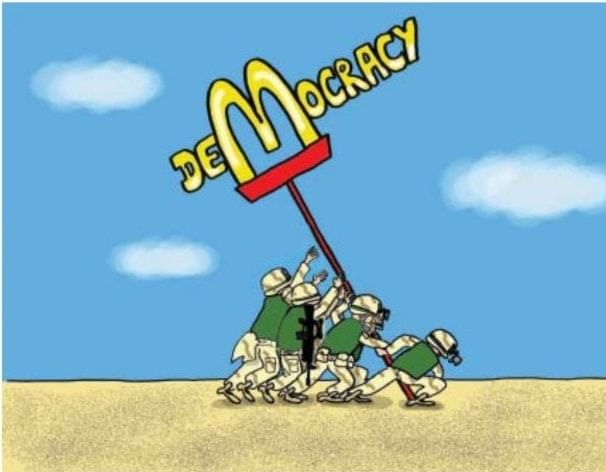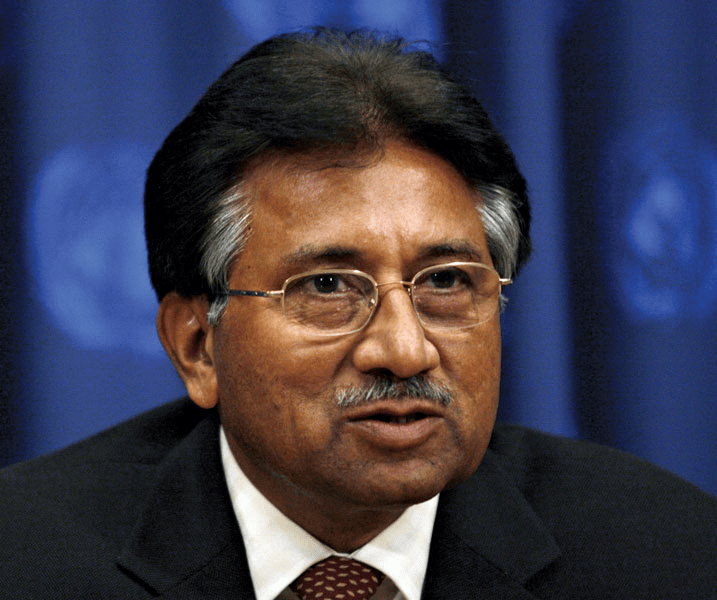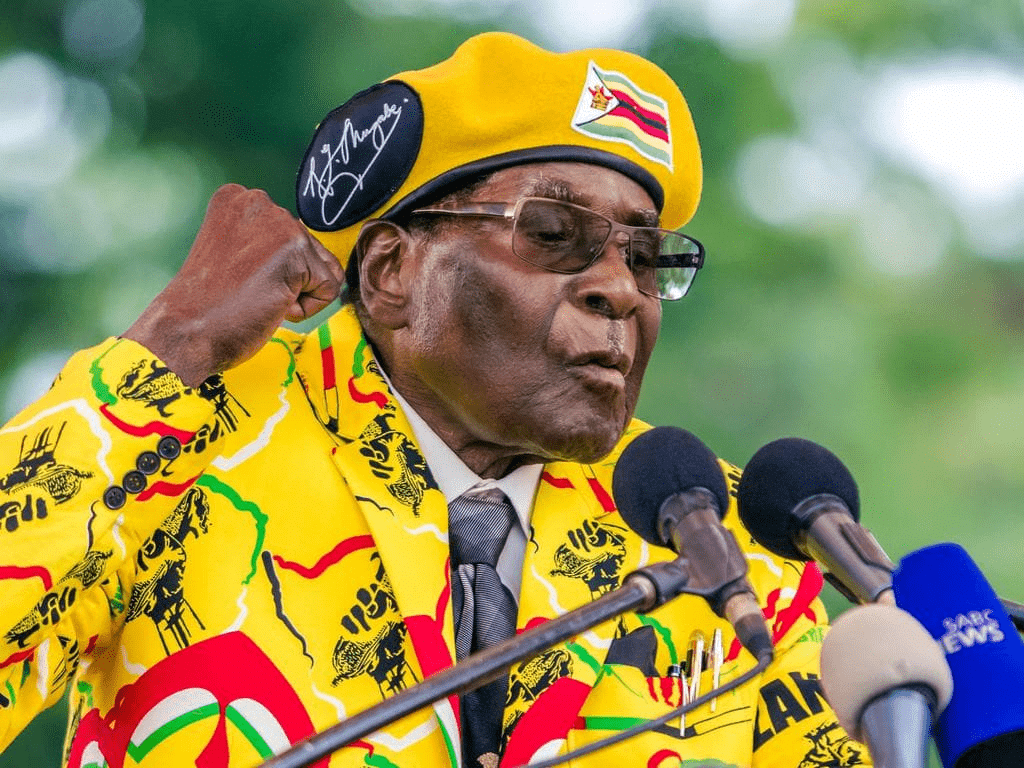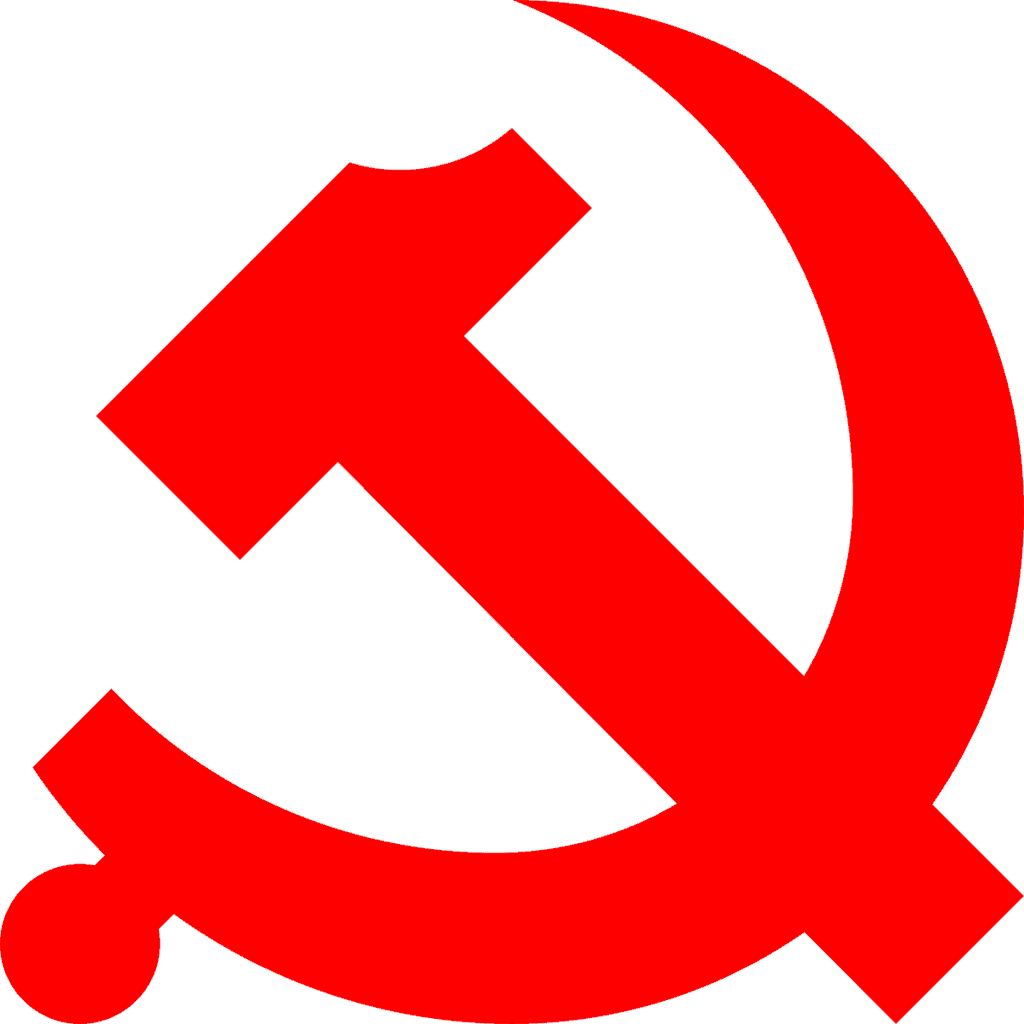Class 9 Civics Chapter 1 HOTS Questions - Democratic Politics - I
Q1. State the main features of democracy.

Ans: The main features of democracy are:
- Decision-making power lies with elected representatives.
- It is based on free and fair elections, allowing current leaders a fair chance of losing.
- Each adult citizen has one vote that carries equal weight.
- A democratic government operates within the limits of constitutional law and respects citizens' rights.
- Democracy provides a way to manage differences and conflicts, enhancing the dignity of all citizens.
Q2. How can you say that Pakistan was not exercising democracy when General Musharraf was ruling?
Ans: General Musharraf led a military coup in October 1999, overthrowing a democratically elected government. He declared himself the 'Chief Executive' and later became President. In 2002, he held a referendum that extended his rule for five years.
Pakistan under General Musharraf cannot be classified as a democracy for several reasons:
- Although people elected representatives to the national and provincial assemblies, these representatives did not hold real power.
- The final decision-making authority rested with military officials and General Musharraf, none of whom were elected by the public.
- Media, human rights organisations, and democracy activists claimed that the referendum was marred by malpractices and fraud.
In summary, the lack of genuine electoral power and the dominance of military authority demonstrate that Pakistan was not exercising true democracy during General Musharraf's rule.
 General Musharraf
General Musharraf
Q3. Giving an example of Zimbabwe, show how laws were made by one single ruler.
Ans: Zimbabwe gained independence from White minority rule in 1980 and has been governed by the ZANU-PF party, which led the freedom struggle. Its leader, Robert Mugabe, ruled the country since independence.
- Elections were held regularly, but ZANU-PF always won, often through unfair practices.
- The government changed the constitution multiple times to enhance the President's powers and reduce accountability.
- Opposition party members faced harassment, and their meetings were often disrupted.
- Public protests and demonstrations were declared illegal.
- Laws restricted the right to criticise the President.
- The government controlled television and radio, promoting only its own narrative.
- Independent newspapers existed, but journalists who opposed the government faced harassment.
This situation illustrates that a government can be popular yet undemocratic. While public approval is necessary for democracy, it is not sufficient. Assessing democracy requires examining elections and the political environment both before and after them.
 Robert Mugabe
Robert Mugabe
Q4. How did Musharraf establish his rule in Pakistan?
Ans: Musharraf's rise to power in Pakistan involved several key steps:
- In October 1999, he led a military coup, overthrowing the democratically elected government.
- He declared himself the Chief Executive and later became the President.
- In 2002, he held a controversial referendum, which extended his term by five years. Critics, including media and human rights organisations, claimed the referendum involved malpractices and fraud.
- In August 2002, he issued a Legal Framework Order that amended the constitution, allowing the President to dismiss national and provincial assemblies.
- The civilian cabinet's work was overseen by a National Security Council, primarily composed of military officers.
While elections were held, the real power remained with the military and Musharraf himself, raising questions about the democratic nature of his rule.
Q5. Why Pakistan may not be called a democracy under General Musharraf?
Ans: Pakistan under General Musharraf cannot be considered a democracy for several reasons:
- Although people elected representatives to the national and provincial assemblies, these representatives did not hold true power.
- The final decision-making authority rested with military officials and General Musharraf, none of whom were elected by the public.
- This situation mirrors many dictatorships or monarchies, where an elected parliament exists, but real power lies with non-elected individuals.
- In a genuine democracy, the ultimate decision-making power should be with those elected by the people.
Thus, despite having elections, the lack of genuine power among elected representatives means that Pakistan under General Musharraf does not fit the definition of a democracy.
Q6. How did China establish a Communist Government?
Ans: In China, elections are held every five years to elect the country's parliament, known as the National People's Congress (NPC).
- The NPC has nearly 3,000 members elected from across China.
- Some members are chosen by the army.
- Candidates must receive approval from the Chinese Communist Party (CCP) before they can run for election.
- In the elections of 2002-2003, only CCP members and those from eight smaller allied parties were allowed to contest.
- The government is consistently formed by the Communist Party.
 Symbol of Chinese Communist Party
Symbol of Chinese Communist Party
Q7. What was PRI? What dirty tricks did it play to win elections in Mexico?
Ans: PRI was the Institutional Revolutionary Party of Mexico. It was known for using various unfair tactics to secure election victories, including:
- Government employees were required to attend PRI party meetings.
- Teachers pressured parents to vote for the PRI.
- The media largely ignored opposition parties, focusing instead on criticism.
- Polling booths were sometimes moved at the last minute, complicating voting for citizens.
- The PRI invested heavily in campaign financing for its candidates.
These practices contributed to a political environment where genuine competition was stifled.
Q8. How did Robert Mugabe establish his dictatorial rule in Zimbabwe, after Independence?
Ans: Robert Mugabe established his dictatorial rule in Zimbabwe after independence through a series of strategic actions:
- The country has been governed by ZANU-PF, the party that led the freedom struggle, since 1980.
- Mugabe, as the leader, maintained power through regular elections, which were consistently won by ZANU-PF.
- Although popular, Mugabe employed unfair practices during elections.
- His government amended the constitution multiple times to enhance presidential powers and reduce accountability.
- Opposition party members faced harassment, and their meetings were often disrupted.
- Public protests against the government were declared illegal.
- There were laws restricting the right to criticise the President.
- The government-controlled television and radio, promoting only the ruling party's narrative.
- While independent newspapers existed, journalists faced harassment for opposing the government.
Q9. Under what conditions is a government-run after the elections?
Ans: A democratic government must operate within certain limits, even after winning elections. Key conditions include:
- The government must respect the rights of minorities.
- Major decisions require a series of consultations.
- Office bearers have specific rights and responsibilities defined by the constitution and law.
- Each official is accountable to both the public and independent authorities.
Furthermore, citizens should enjoy basic rights, including:
- The freedom to express opinions and engage in political activities.
- The right to form associations and protest.
- Equality before the law, protected by an independent judiciary.
Q10. Which Pakistan General led a military coup in October 1999?
(a) Nawaz Sharif
(b) Parvez Musharraf
(c) Ayub Khan
(d) None of these
Ans: B
General Pervez Musharraf led a military coup in October 1999. He overthrew the democratically elected government. Musharraf declared himself the 'Chief Executive' of Pakistan. Later, he changed his title to President. In 2002, he held a referendum to extend his rule. Thus, the answer is B.
Q11. The famous political party of Mexico was:
(a) People's party
(b) Institutional Revolutionary party
(c) Revolutionary party
(d) Chinese Communist party
Ans: B
The famous political party of Mexico is the Institutional Revolutionary Party (PRI).
- Opposition parties contested elections but rarely won.
- The PRI employed various tactics to secure victories.
- Government employees were often required to attend PRI meetings.
- Teachers pressured parents to vote for the PRI.
- The media largely ignored opposition parties, focusing on criticism instead.
- Polling booths were sometimes moved last minute, complicating voting.
- The PRI invested heavily in campaign funding.
Q12. Who did not have the right to vote in Saudi Arabia?
(a) Non-propertied men
(b) Non-residents
(c) Women
(d) Propertied men
Ans: C
The following groups did not have the right to vote in Saudi Arabia:
- Women (until 2015)
- Non-propertied men
- Non-residents
Among these, the primary group that lacked voting rights was women.
Q13. Which party of Zimbabwe helped its country to gain independence?
(a) ZANU-PF
(b) Popular party
(c) Zimbabwe party
(d) None of these
Ans: A
The party that played a crucial role in Zimbabwe's independence is ZANU-PF.
- It led the struggle against White minority rule.
- Robert Mugabe, its leader, governed Zimbabwe from independence in 1980.
- ZANU-PF has consistently won elections since then.
Thus, the correct answer is: A.
Q14. During which period did China record its worst famines in the world's history?
(a) 1935-39
(b) 1958-61
(c) 1952-55
(d) 1943-46
Ans: B
The worst recorded famine in world history occurred in China between 1958 and 1961. During this period:
- Approximately 30 million people died.
- China's government policies contributed significantly to the famine.
- In contrast, India faced economic challenges but did not experience a famine of this scale.
This situation highlights the importance of democracy in responding to the needs of the population.
Q15. How many members are elected to the National People’s Congress from all over China?
Ans: The National People's Congress has nearly 3,000 members elected from across China. Some members are chosen by the army, and candidates must receive approval from the Chinese Communist Party before running for election. Only members of the Communist Party or its allied parties were allowed to contest elections held in 2002-03.
- Members are elected every five years.
- The Congress has the authority to appoint the country's President.
- Election participation is limited to approved candidates.
Q16. Which party always won elections in Mexico since its independence in 1930 until 2000?
Ans: The party that consistently won elections in Mexico from its independence in 1930 until 2000 was the Institutional Revolutionary Party (PRI).
- The PRI dominated the political landscape for decades.
- Opposition parties contested but were unable to secure victories.
- The PRI employed various tactics to maintain its power.
Q17. which of these features is/are necessary to provide the basic rights to the citizens?
Ans: Necessary features for citizens' basic rights:
- Freedom to think: Citizens should be able to form their own opinions.
- Freedom to form associations: Individuals should have the right to join groups.
- Freedom to protest: Citizens must be able to express their dissent.
Therefore, the answer is all of the above.
Q18. Some of the drawbacks of democracy is
Ans: Some of the drawbacks of democracy are:
- Instability and delays in decision-making.
- Corruption and hypocrisy among leaders.
- Frequent conflicts among politicians.
Thus, the answer is all of the above.
Q19. Why do we need to define democracy accurately?
Ans: The simple definition of democracy as people's rule is insufficient. Using this definition without thought could lead us to label nearly every government that holds elections as a democracy, which is misleading.
Many governments today wish to be seen as democracies, even if they are not. Therefore, it is essential to:
- Clearly distinguish between a genuine democracy and a government that merely pretends to be one.
- Define democracy accurately as a form of government where the rulers are elected by the people.
This careful definition helps us identify the key features of a democratic government and ensures we do not confuse it with non-democratic systems.
Q20. Why Pakistan under General Musharraf should not be called democracy as stated by President Musharraf?
Ans: Pakistan under General Musharraf should not be considered a democracy for several reasons:
- Although people elected their representatives to the national and provincial assemblies, these representatives did not hold real power.
- Final decision-making authority rested with military officials and General Musharraf, none of whom were elected by the public.
- This situation is common in various countries where an elected parliament exists, but the true power lies with unelected individuals.
In summary, for a government to be deemed a democracy, the final decision-making power must be held by those elected by the people.
Q21. In which countries, even today, there is a denial of equal right to vote?
Ans: The principle of universal adult franchise is widely accepted, yet some countries still deny equal voting rights:
- Saudi Arabia: Women were denied the right to vote until 2015 and are often discouraged from participating in politics.
- Estonia: Citizenship rules make it challenging for the Russian minority to obtain voting rights.
- Fiji: The electoral system values the vote of an Indigenous Fijian more than that of an Indian Fijian.
Q22. Once elected by the people, what kind of duties are needed to be performed by the office-bearers?
Ans: A democratic government must adhere to specific duties after being elected:
- It cannot act arbitrarily; it must follow basic rules.
- It must provide guarantees to minority groups.
- Major decisions require a series of consultations.
- Each office bearer has defined rights and responsibilities set by the constitution and law.
- They are accountable to both the public and independent officials.
|
55 videos|525 docs|78 tests
|
FAQs on Class 9 Civics Chapter 1 HOTS Questions - Democratic Politics - I
| 1. What are the key features of democracy? |  |
| 2. Why is democracy considered important? |  |
| 3. What are some challenges faced by democracies today? |  |
| 4. How does democracy differ from other forms of government? |  |
| 5. Can democracy exist in all cultures? |  |






















